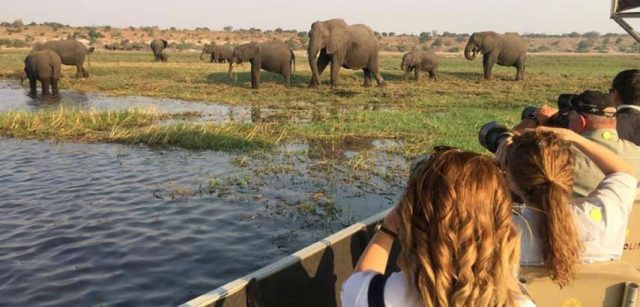[ad_1]

When planning a safari trip, have you ever considered the impact it might have on the environment and local communities? Many travelers are unaware of the negative consequences that unsustainable tourism can have on wildlife and the people living in these regions.
Safari trips have become increasingly popular, with tourists seeking thrilling wildlife encounters and breathtaking landscapes. However, this surge in tourism has also brought along some negative effects, such as habitat degradation, wildlife disturbance, and exploitation of local communities.
It’s essential to recognize the importance of sustainable safari trips, which not only protect and conserve the natural environment but also support the livelihoods of local communities. In this article, we’ll explore the reasons why sustainable safari trips are crucial and how you can make a difference as a responsible traveler.
Why You Should Consider Sustainable Safari Trips
Environmental Conservation
Sustainable safari trips prioritize environmental conservation by minimizing the negative impact on wildlife and their habitats. These trips are designed to ensure that wildlife and ecosystems are protected and preserved for future generations to enjoy.
Support Local Communities
Sustainable safari trips often work closely with local communities, providing economic opportunities and promoting cultural exchange. By choosing these trips, you are directly contributing to the local economy and supporting sustainable development in the region.
Ethical Wildlife Encounters
Sustainable safari trips prioritize ethical wildlife encounters, ensuring that animals are not exploited or harmed for tourism purposes. These trips often follow strict guidelines to minimize disturbance to wildlife and promote responsible wildlife viewing practices.
Education and Awareness
Safari trips that are environmentally friendly often include educational components, allowing travelers to learn about the importance of conservation and the challenges facing wildlife and ecosystems. This increased awareness helps to promote a greater understanding and appreciation for the natural world.
Long-Term Sustainability
Safari trips that are sustainable aim to ensure the long-term sustainability of conservation efforts by supporting initiatives that protect wildlife and their habitats. By participating in these trips, you are contributing to ongoing conservation efforts and helping to create a sustainable future for wildlife and ecosystems.
Personal Growth and Reflection
Sustainable safari trips often provide opportunities for personal growth and reflection. Connecting with nature and witnessing the beauty of wildlife can be a transformative experience, fostering a greater appreciation for the natural world and our role in protecting it.
Positive Impact on Climate Change
Sustainable safari trips often incorporate eco-friendly practices, such as using renewable energy sources, minimizing waste, and supporting carbon offset initiatives. By choosing these trips, you are reducing your carbon footprint and contributing to the fight against climate change.
Responsible Tourism
Sustainable safari trips promote responsible tourism practices, including respecting local cultures and traditions, minimizing waste, and supporting local conservation efforts. These trips allow you to actively participate in responsible tourism and make a positive impact on the destinations you visit.
How to Support Sustainable Safari Tours
Tourists go on safari holidays to relax and see their favorite animals in the wild. In some safari resorts, you can also play rhino-style video games or even relax at a restaurant. Whatever you plan to do, follow these sustainable tips.
Choose Responsible Tour Operators
When planning a safari tour, it’s important to select tour operators that prioritize sustainability. Look for operators that are certified by reputable organizations such as the Global Sustainable Tourism Council (GSTC) or have eco-tourism certifications. These operators should have policies in place to minimize their environmental impact, support local communities, and promote wildlife conservation.
Respect Wildlife and their Habitat
While on safari, it’s crucial to respect the natural environment and wildlife. Follow the guidelines provided by your tour operator and local guides, such as maintaining a safe distance from animals, not disturbing their natural behavior, and avoiding littering or leaving any trace behind. This helps to preserve the natural habitat and minimize any negative impacts on wildlife.
Support Local Communities
Sustainable safari tours should aim to benefit local communities by providing employment opportunities, supporting local businesses, and contributing to community development projects. Choose tour operators that work closely with local communities, hire local guides and staff, and promote cultural exchange. This ensures that the benefits of tourism are shared with the local people and helps to alleviate poverty in the region.
Final Thoughts
By being mindful when planning our trips and taking into consideration how our behavior affects those around us, we can ensure that everyone involved benefits from the experience. Together, let’s work towards preserving these fragile ecosystems and exploring them responsibly for the benefit of our planet and its complex circle of life for generations to come.
[ad_2]
Source link
Jarastyle – #Importance #Sustainable #Safari #Trips
Courtesy : https://drifttravel.com/conservation-and-community-the-importance-of-sustainable-safari-trips/

